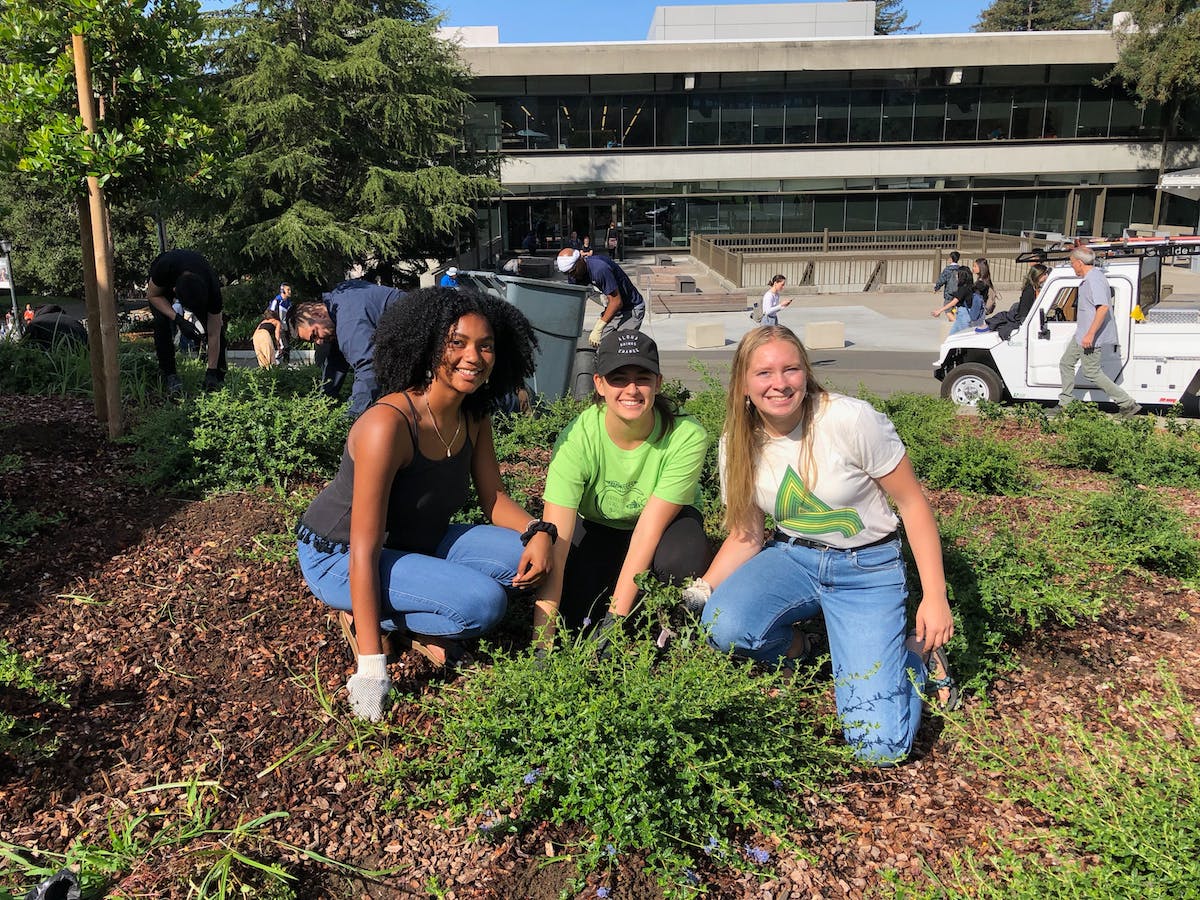Students nationwide push to rid campus lawns of toxic pesticides

Published: October 4, 2022
Category: The Non-GMO Blog, Pesticides
With so many students majoring in environmental studies these days, it’s not surprising they’re re-examining the pristine, grass-filled quads of their alma maters. From University of Michigan to Princeton to UC Berkeley, they have joined forces and now operate through the organization Re:wild Your Campus, which invites 20 or so student fellows each year to learn how to make changes on their campuses.
It began with two beach volleyball players from UC Berkeley, who were shocked at the toxic spraying (glyphosate) done right near their court. Sheina Crystal now directs communications for the group they formed, Herbicide Free Campus. A successful grant application to bring in organic experts to work the UC Berkeley’s staff and grounds crew has resulted in 95% of the campus being managed organically.
The group changed its name this summer to Re:wild Your Campus, joining Leonardo DiCaprio’s Re:wild organization.
The challenge is to go slowly with groundskeepers who have worked with synthetic chemicals for years to keep college lawns pristine. The approach is educational and collaborative, with tact and respect required. Funding is often an obstacle as well—administrative support is needed. Letting go of the aesthetic “look” campuses cultivate is tricky, as organic practices don’t always provide that. But schools from Brandeis and Sarah Lawrence to Loyola Marymount are making headway, even in the short four-year stay of students.
“The data [students] collected shows that organic management is actually not more costly in the long run…[despite] upfront investments,” Crystal said. “You can see a real, tangible outcome,” says Crystal—organic and spray-free areas, prairie grass patches. “Having those small wins is really empowering.”
Source: Modern Farmer
To view source article, visit:
https://modernfarmer.com/2022/08/pesticides-herbicide-free-campus/
Organic & Non-GMO Insights October 2022








